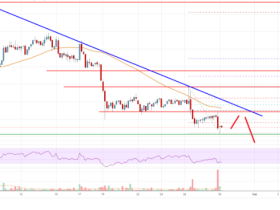Bitcoin’s (BTC) price may have fallen below $20,000 in the past six weeks, but the network’s fundamentals are far from bleak. The latest development occurs as the crypto market as a whole experiences another price swing, driving the value of the majority of digital assets lower.
The newest on-chain metrics show that both the hash rate and the difficulty are on the rise and show no signs of slowing down anytime soon.
As a result of the market correction, Bitcoin has endured a turbulent year. As with other tokens, the price of the token has been fluctuating for some time.
Data Supports ‘Rough Ride’ Difficulty Increase
Despite a weekly decline of approximately 7%, miners continue to mine Bitcoin. The miners have recently completed a multi-month stage of capitulation.
The most important metrics are trending upward as we approach the end of August, suggesting that network competition has returned and is here to stay. This is reflected by the difficulty rate, which is anticipated to increase by 6.8% over the following week. Moreover, this is because miners compete for block incentives.
According to data compiled by the on-chain tracking platform BTC.com, this will be the largest upward difficulty shift since January of this year. In addition, if the 6.8% increase transpires, the difficulty will reach new all-time highs in light of the factors in play.
A Bitcoin mining consultancy called Blocksbridge has predicted that a significant increase in difficulty could lead to yet another record high. In a press release dated August 27, the company anticipated the publication of the most recent issue of “Miner Weekly.”
Nonetheless, Blocksbridge emphasized that the existing network environment was challenging for all participants.
Those with obsolete equipment, for example, were hit the hardest by spot price declines.
In addition, the corresponding decline in the value of block subsidies and fees relative to costs such as energy costs also contributes to the situation.
Hash Rate Reaches a New Highmark
Bitcoin’s hash rate appears to reflect difficulty in a renewed push for new highs as the network eyes more bullish numbers. MiningPoolStats reported that the hash rate reached 246 exahashes per second (EH/s) on August 22, down from a record-setting 251 EH/s in late April.
The term “hash rate” is used to define how quickly a computer can perform hashing operations. Bitcoin’s hash rate reflects the effectiveness and productivity of a mining machine.
The value here defines how quickly a mining device will try to calculate a hash for a query. When multiple hashing operations are performed, a correct hash is generated.
This means that Bitcoin miners need to run a massive amount of data through a hashing algorithm in order to generate a hash. A mine is deemed successful if a particular hash value is generated.
The profitability of an individual miner or mining pool is directly proportional to their hash rate. A higher hash rate indicates a higher probability of mining a block and, consequently, a higher probability of receiving the block reward.
However, the hash rate is still just an estimate, and its values don’t necessarily reflect real-world fluctuations in mining activity.








Leave a Reply